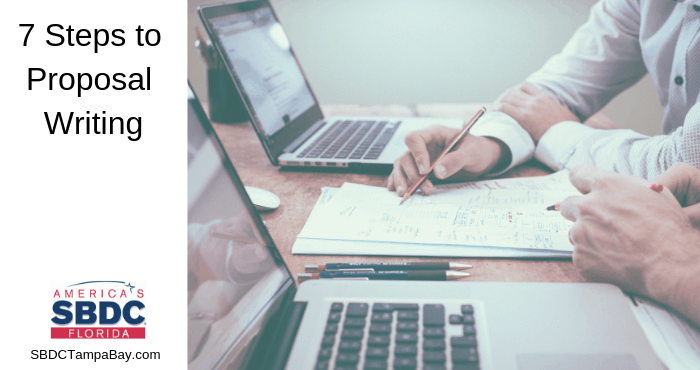7 Secrets to Proposal Writing

Over the years, I’ve been asked about the secret to proposal writing and for many the answer has been ‘reading and reading again.’ Yet, it requires several more steps to prepare a proposal that could lead to contract opportunities.
Before responding to a request for proposal or quote, you need to know your audience. First reading exercise! Who are they? How do they procure? Do they procure what you sell? How often do they procure what you have to offer?
If you respond, it is because you provide solutions your prospective clients need. Once you have this information, then you need to determine if you are prepared and equipped to enter the competitive world of procurement.
As you determine how prepared and equipped you are, keep in mind that price sensitivity is a factor taken into consideration. To this end, are you financially able to compete? If you win the contract, do you understand when the first payment will be received? Do you have to scale up? Can you carry the financial pressure of doing so?
The government’s expectation is getting the desired solution for the best price. Keep in mind that its best price might be difficult or impossible for you. If this is the case, do not despair, keep searching and keep preparing as there might be a new opportunity in the future.
When ready to start writing your proposal, these seven simple, yet time-consuming, steps should help you prepare a good response.
- Understand what is being procured by reading the announcement and how it is being procured. Remember there are differences between Request for Proposal, Request for Information, Request for Quote, and Invitation to Bid. Government agencies may have more than one way to procure and understanding the process will impact how your proposal is viewed.
- Honestly decide if you can provide the solution the agency is seeking. If the project is too large or if it requires you to change your core offerings, it will be better to pass than set yourself up for possible failure.
- By answering all the questions and sections of the request, clearly demonstrate you are the best vendor and ideal solutions provider. Your response is not about how great you are, but rather how prepared you are to solve the problem at hand.
- Do not leave sections or questions unanswered. Doing this will automatically categorize your proposal as non-responsive. This is why reading and re-reading is so important.
- Confirm that your price will make this opportunity profitable for you and that you are offering a competitive price. Many times these two factors don’t agree with each other. Be honest with yourself as there is no opportunity to “fix” the price once you have submitted your proposal.
- When done with the proposal, ask for it to be reviewed, preferably by someone who was not part of the process of writing it. Does it answer all the questions? Does it clearly demonstrate your ability to solve the problem at hand? Is it error free with no misspelled words?
- Develop lasting relationships. You may not always get the contract, but strong relationships are important and necessary.
If at first you do not succeed, ask questions about the top proposals; ask to review them. This should give you greater insight on how to prepare your next proposal. Even when you win, ask to see who came in second place and what made the difference.
Proposal writing takes time and effort, but it does not have to be a difficult task. You will be able to prepare basic information that will be useful in your responses, reducing the amount of time required in putting proposals together and allowing you greater time to review the details.





Yanina Rosario
Certification Consultants, Consultants, Rosario, TampaAssociate Director, NASBITE Certified Global Business Professional (CGBP), Associate Business Continuity Professional (ABCP), Florida SBDC at USF, Tampa
Specialty: Women/Minority/Veteran Certification
Yanina Rosario, Florida SBDC at USF associate director and certified business consultant, specializes in business certifications, business planning, and marketing. She oversees operations in Hillsborough, Pasco and Hernando counties. Rosario’s expertise comes from years of guiding pre-venture and well-established business owners through procurement, licensing, planning, marketing and financing, helping clients secure more than $5.2 million in small business loans. Rosario serves on the board of directors for the CareerSource Tampa Bay, is a member of the City of Tampa Equal Business Opportunity Advisory Committee, and the Minority Enterprise Development Week (MED Week) planning committee. She manages the Florida SBDC at USF’s Emergency Bridge Loan Committee. Rosario obtained a bachelor degree in marketing from the University of Central Florida and a masters in management from the Florida Institute of Technology. She also is a NASBITE Certified Global Business Professional (CGBP) and a certified Associate Business Continuity Professional (ABCP).